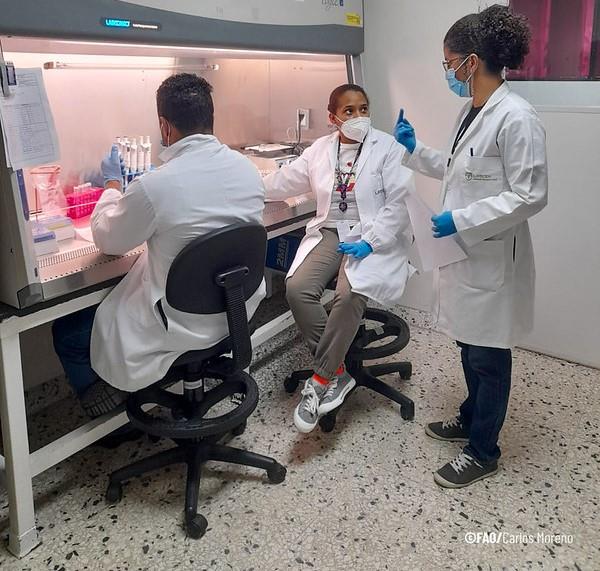FAO launches a new African Swine fever-free course for specialists in four languages for Latin America and the Caribbean

October, 2023.- The Food and Agriculture Organization of the United Nations, FAO, launched the Introduction to African Swine Fever (ASF) course in Spanish, English, French, and Portuguese, developed by the Sustainable Livestock, Animal Health, and Biodiversity program from Latin American and Caribbean regional office, aims to support the training and updating of veterinarians, technicians and professionals linked to swine production chains from the public and private sector in the countries of the region.
ASF is a viral hemorrhagic disease affecting domestic and wild pigs and wild boar, which is highly contagious and generally causes the death of affected animals. Although it poses no risk to human health, it can strongly impact the pig chain, from smallholder farms to large commercial ones, affecting food production and security in the countries.
"ASF is currently a serious threat to swine farming in the continent and the world. Its rapid spread, high mortality and the lack of a vaccine put the livelihoods of small and large livestock farmers at risk, causing severe economic losses on affected farms," said Andrés González, FAO's Sustainable Livestock, Officer of Animal Health and Biodiversity.
"The courses seek to contribute to a regional standard for a preventive health approach, biosecurity along value chains, and the fight against this virus. FAO, committed to food production and security, seeks to support professionals in the region and minimize the impact of this disease that does not respect borders", added González.
The courses are open and free, in a self-learning format, so participants can follow the lessons flexibly, generating a certificate of completion. To enroll, opening an account on the platform corresponding to each language is only necessary, and the system will send a verification message to your email address.
The courses are offered by FAO Training, a regional unit of FAO's network of Virtual Learning Centers (VLCs), which concentrates training efforts in animal health worldwide.
